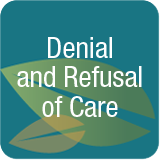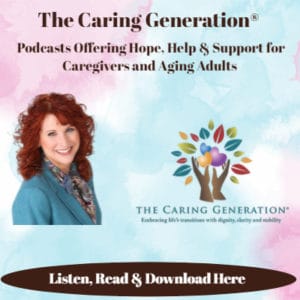Are You in Poor Health?
 Good health or aging successfully is not limited only to the state of your physical health and level of activity. There are other contributing factors that are overlooked like mental health and the level of social contact and support.1
Good health or aging successfully is not limited only to the state of your physical health and level of activity. There are other contributing factors that are overlooked like mental health and the level of social contact and support.1
All of these factors combined whether you will age healthy or age sickly. Even more interesting, research proves that individuals who rate themselves as being “in poor health” are more likely to die before their peers who report themselves as being “in good health”.2

Who knew there were factors one should pay attention to early in life to support aging healthy? Why were these insights or secrets not mentioned early in life by physicians or other family members? Would you have cared? Would the information have made a difference?
To some, education and information about aging and preventative care are invaluable; others lack interest. The difference in interest level in health and well-being is two-fold represented by:
1) a personal level of interest in being and remaining healthy and active
2) the ability to self-regulate or to choose behavior that is positive rather than negative to health.
Both of these factors are affected by your childhood and how your parents viewed your health and lifestyle. There are also events that create an interest in researching health, like the early death of a family member.
It is never too late to make the choice to be healthy. Physical health and level of activity are two areas in which a little focus and attention can show great results even if you start slowly and work up to increased levels of activity.
Exercise results occur not only from the level of intensity but also from the time spent in exercise. Whether you walk, jog or participate in another activity the act of raising your heartbeat will strengthen your cardiovascular system and improve muscle strength and physical balance.
For some, the word exercise conjures up pictures of the unpleasant activity at the gym and including the use of weight and exercise equipment. For others, exercise represents enjoyable activities like hiking outdoors with friends, bicycling, or mowing the lawn.
Exercise, and how you view the activity, are all in your attitude and in your mind. Exercise is also mental: reading books, learning a foreign language, participating in crossword puzzles, word search games, jigsaw puzzles, and more. The body benefits from physical and mental activity.
The benefits of strengthening your cardiovascular system support managing blood pressure, and avoiding heart disease and stroke; both of which are believed to contribute to vascular dementia.
Alzheimer’s disease is just one of the diagnoses of memory loss and related declines, vascular dementia, frontal temporal dementia, and brain injuries are some of the others. Being a caregiver for an individual with Alzheimer’s disease increases the likelihood of cardiovascular disease. 3
Maintaining good physical health strengthens muscles and improves balance. Physical activity reduces the likelihood of a physical disability that increases the difficulty of performing daily activities like making a bed, standing at the stove to prepare a meal, walking a flight of steps, and many activities older adults eventually find difficult.
Good physical health also helps avoid falls and fractures that contribute to permanent nursing home placement or early death. Other contributors that have been identified that contribute to declining health include smoking, alcohol consumption, sleeping too much, and poor dietary habits.2
Social contact with family and friends is also critical to aging in good health. Social activity supports the brain through participation in intellectual conversations and activities.
The internet has made contact with those far away relatively simple and helps develop the skill of using a computer. Social support and contact also reduce the likelihood of depression, anxiety, and potential mental health issues.
Just the opposite, isolation contributes to cognitive, physical, and functional declines and results in more frequent hospitalizations and the likelihood of permanent institutionalization.
While you may fail to consider the long-term effects of health while you are young and perfectly healthy, life changes as soon as a diagnosis of chronic disease is made resulting in a need to take medications. At the point of a chronic diagnosis, your attitude about health will be your best friend or your worst enemy.
Many individuals experiencing chronic illness or pain become depressed and less active. This results in increasing physical disability and poorer health including self-reports of being in “poor health”. Individuals, in spite of chronic illness and pain, who continue a healthy lifestyle that supports good mental and physical health fare better in their daily lives and report “good health”.
As in many aspects of life, your attitude supports a positive outlook and well-being. In no aspect of life is a positive attitude more important.
Older adults experience more frequent hospitalizations. Remaining out of the hospital becomes more challenging if the appropriate coordination and follow-up to support health fail to occur. For some older adults, follow-through and coordination of health-related activities after a hospitalization becomes challenging.
References:
1 Parslow, R., Lewis, V., and Nay, R. “Successful Aging: Development and Testing of a Multidimensional Model Using Data From a Large Sample of Older Australians”. J Am Geriatr Soc 59:2077-2083, 2011.
2 Tsubota-Utsugi, M., et al. “Health Behaviors as Predictors for Declines in Higher-Level Functional Capacity in Older Adults: The Ohasama Study.” J Am Geriatr Soc 59:1993-2000, 2011.
3 Von Kanel, R. et al. “Cardiometabolic Effects in Caregivers of Nursing Home Placement and Death of Their Spouse with Alzheimer’s Disease.” J Am Geriatr Soc 59:2037-2044, 2011.
© 2012, 2013 Pamela D. Wilson, All Rights Reserved.
Return to the Denial and Refusal of Care Category PageReturn to All Category Page



